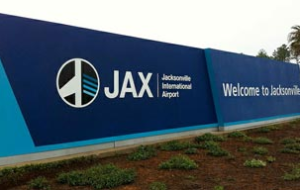TALLAHASSEE —- Jeff Keeton and Ed Adams cruised through Tallahassee on a recent Saturday night, but the two men weren’t looking for the nearest nightclub.
Using a global positioning system on Adams’ laptop computer, the two recovery agents were looking for the best route to a rock quarry that contained what they were looking for: a $140,000 piece of construction equipment called a Caterpillar excavator.
A finance company wanted the equipment back because the company that bought it was four months and $20,000 behind in its payments. So the finance company hired Jacksonville’s Specialized Collateral Recovery to return the excavator.
Keeton, the son of SCR’s owner, Robert Keeton, said the quarry owners hadn’t responded to telephone calls about the equipment, so he decided to go there late one Saturday night to scout out the place.
After meeting with another co-worker in Tallahassee, the three men drove to the site in Carrabelle accompanied by a Florida Times-Union reporter. One of them lifted the cable across the quarry’s entrance as Keeton drove his pickup onto the property.
For 45 minutes, Keeton drove around the site that looked like a lunar landscape with acres of trenches illuminated only by the pickup’s headlights.
Despite hours of work and planning, the agents came up empty. The excavator was nowhere in sight, so they decided to go back to their hotel in Tallahassee for the night and return the following morning.
The recovery business is rarely easy, sometimes lucrative, but never slow — especially during a recession. And other professionals in the credit industry said they’re busy as the economy stalls and debtors begin to feel the pinch of hard times.
“When you get more layoffs, you get more repossessions,” said John Jackley, creator of the Repoman.com Web site.
 STEADY BUSINESS
STEADY BUSINESS
The nation’s economy had been flagging for more than a year before the Sept. 11 terrorist attacks. But the attacks had a major effect on credit payments because debtors suddenly had different priorities. Paying bills wasn’t at the top of the list, said John Rockhill, past president of ACA International, a trade organization of credit and collection professionals.
Rockhill, who also is the president of MCB Collection in Vero Beach, said payments have been slower and the recovery percentage has slipped at his company, which receives 30,000 new accounts a month.
Jerry Blair, director of operations for SCR, said he hasn’t noticed a big jump in repossessions so far. But he expects one soon because of a delayed reaction to the recession.
“Probably the next two years, there will be a real increase,” Blair said, “but then after that we look for it to level off to normal times.”
SCR, which recovers commercial property, such as equipment and heavy machinery, handles about 1,200 cases per year, Blair said.
Collection and repossessing experts said finance companies and other lenders may be more hesitant to repossess vehicles during slow economic times because few people are buying used cars. Indeed, some said the market is flooded with used cars because of the cash shortage combined with the zero-percent financing offered on new cars.
In November, the Consumer Credit Counseling Service of South Florida had 55 percent more people contact the service than in the same month of the previous year. Last month, the service reported 14,000 telephone calls, that’s a 41 percent increase over last year, said Phil Garner, the service’s president and chief executive.
“A lot of people are seeking help and realize they’re overloaded,” he said. “In many cases it’s just people living too close to the edge.”
THE DEBTOR’S DEAL
The business of repossessing property has never had a sterling public image, and a brief journey into the repo world does little to dispel that image. …
 A Jacksonville Airport Authority plan to build an $8 million headquarters would cost $5.2 million more than simply converting a mostly vacant building the agency’s predecessor built three years ago.
A Jacksonville Airport Authority plan to build an $8 million headquarters would cost $5.2 million more than simply converting a mostly vacant building the agency’s predecessor built three years ago.


